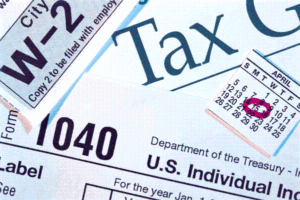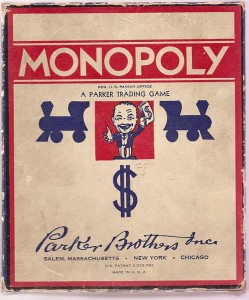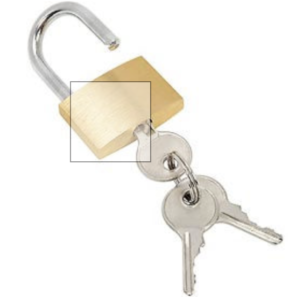 In our current state of technology overload and the expectations of busyness, we’ve seemingly forgotten our need for quiet and calm. New studies are showing that our bodies need this time to rest, reconnect, and even become more creative. The New York Times article, The Case for Doing Nothing recommends finding the state of “Niksen,” a Dutch word meaning to do nothing. Keeping our bodies in motion and our brains occupied may feel productive but often leads to exhaustion and a reduced capacity to work efficiently. Turns out that we actually need extreme down time, or as they say in the article, boredom. Give it a try! Take an afternoon to sit and daydream, go to the park and people watch, sit on the couch and imagine, then see how you feel afterward.
In our current state of technology overload and the expectations of busyness, we’ve seemingly forgotten our need for quiet and calm. New studies are showing that our bodies need this time to rest, reconnect, and even become more creative. The New York Times article, The Case for Doing Nothing recommends finding the state of “Niksen,” a Dutch word meaning to do nothing. Keeping our bodies in motion and our brains occupied may feel productive but often leads to exhaustion and a reduced capacity to work efficiently. Turns out that we actually need extreme down time, or as they say in the article, boredom. Give it a try! Take an afternoon to sit and daydream, go to the park and people watch, sit on the couch and imagine, then see how you feel afterward.
Category: Federal Income Tax
Go Tax Paperless
 Ready to ditch your file cabinet? Explore going paperless with your tax documents. A great start is organizing your files using a document scanner. Many of these have wifi capabilities and function as part of your at-home network. Shredding old paper documents helps protect against identity theft.
Ready to ditch your file cabinet? Explore going paperless with your tax documents. A great start is organizing your files using a document scanner. Many of these have wifi capabilities and function as part of your at-home network. Shredding old paper documents helps protect against identity theft.
Once your scanning is complete, create one file on your computer to hold these documents. Be sure to back-up your documents in more than one place, such as on a flash drive, external drive, or a personal cloud. Experts suggest keeping these files for up to seven years. Make collecting this information easy by tracking receipts and invoices with simple budgeting apps and watch the clutter in your home office disappear. Want to learn more? Click here: How to Go Paperless in Your Home Office
Keeping Your Budget Organized
 What tools do you use for your personal budgeting? Ever wonder if you are saving enough to last through retirement or if you have the money for a trip you’ve been wanting to take? What about teaching your children the value of a dollar and how to save, delay gratification when they see an item they want?
What tools do you use for your personal budgeting? Ever wonder if you are saving enough to last through retirement or if you have the money for a trip you’ve been wanting to take? What about teaching your children the value of a dollar and how to save, delay gratification when they see an item they want?Is It Worth Saving?
 Rural America is facing a severe decline in employment rates and population. As more families move to the city, these outlying areas are also experiencing an uptick in the traditionally urban problems of opioid addiction and crime. Eduardo Porter for the New York Times explores solutions to this growing issue in his article, The Hard Truths of Trying to ‘Save’ the Rural Economy. Policy makers have a host of ideas to solve this growing crisis but many fail to consider important variables such as extreme housing costs in prosperous cities.
Rural America is facing a severe decline in employment rates and population. As more families move to the city, these outlying areas are also experiencing an uptick in the traditionally urban problems of opioid addiction and crime. Eduardo Porter for the New York Times explores solutions to this growing issue in his article, The Hard Truths of Trying to ‘Save’ the Rural Economy. Policy makers have a host of ideas to solve this growing crisis but many fail to consider important variables such as extreme housing costs in prosperous cities.
Fuel Your Passion, Fuel Yourself
 Although your passions may not develop into a career, channeling them into your weekly routine can make a huge difference in how you feel about work and life in general.
Although your passions may not develop into a career, channeling them into your weekly routine can make a huge difference in how you feel about work and life in general.
Liz Schumer for Smarter Living in the New York Times reminds us that, Whether you’re looking to cultivate a hobby as a professional steppingstone, or just to feel more fulfilled, extracurricular activities carry measurable benefits. And even if you don’t have a passion that really stokes your flames, there’s hope for you, too.
Want to experience this for yourself? Make a plan weeks in advance to carve out time for an activity that fills your cup.
Why Following Your Passions Is Good for You (and How to Get Started)
Student Loans May Affect Homeownership
 Rising tuition costs and student debt are becoming significant factors in the ability of millennials to buy houses. An analysis published by the Federal Reserve Bank of New York last year suggests that student debt was responsible for up to 35 percent of the decline in homeownership among people between the ages of 28 and 30 from 2007 to 2015. (Homeownership for people under 28 tends to be low.). With many young adults leaving college with large bills, even landing good jobs isn’t enough to pay their debt in a timely manner.
Rising tuition costs and student debt are becoming significant factors in the ability of millennials to buy houses. An analysis published by the Federal Reserve Bank of New York last year suggests that student debt was responsible for up to 35 percent of the decline in homeownership among people between the ages of 28 and 30 from 2007 to 2015. (Homeownership for people under 28 tends to be low.). With many young adults leaving college with large bills, even landing good jobs isn’t enough to pay their debt in a timely manner.
How Student Debt Can Ruin Home Buying Dreams
Not Sweet For Everyone
 Just Born was back in the news just before Easter. The Bethlehem, PA company famous for its bright marshmallow confections, Peeps, has returned to the trenches with the union workforce over pension benefits. Now both sides await a federal appeals court ruling. The fight has divided the town as the company works to insure solvency for years to come.
Just Born was back in the news just before Easter. The Bethlehem, PA company famous for its bright marshmallow confections, Peeps, has returned to the trenches with the union workforce over pension benefits. Now both sides await a federal appeals court ruling. The fight has divided the town as the company works to insure solvency for years to come.
Trouble in candy land
Does Your Business Qualify?
 The promising new tax break for business owners lacks well defined language and at the moment is causing more confusion than celebration. While businesses struggle to figure out if they will be able to take part in this tax break worth $415B, they await further definition from those drafting the paperwork.
The promising new tax break for business owners lacks well defined language and at the moment is causing more confusion than celebration. While businesses struggle to figure out if they will be able to take part in this tax break worth $415B, they await further definition from those drafting the paperwork.
No one’s sure who qualifies for this $415B tax deduction
Spend More Make Less?
 The IRS outsourced tax collection in an effort to “put a dent in the $138 billion that taxpayers owe the government.” This action cost the agency $20 million and netted a little over six million in past due monies. Combined with contractor payments and relatively low collection rates, other cost factors included the streamlined approval of “tax-exempt organizations” as well as lack of funding for better direct (IRS) communication with tax payers.
The IRS outsourced tax collection in an effort to “put a dent in the $138 billion that taxpayers owe the government.” This action cost the agency $20 million and netted a little over six million in past due monies. Combined with contractor payments and relatively low collection rates, other cost factors included the streamlined approval of “tax-exempt organizations” as well as lack of funding for better direct (IRS) communication with tax payers.
